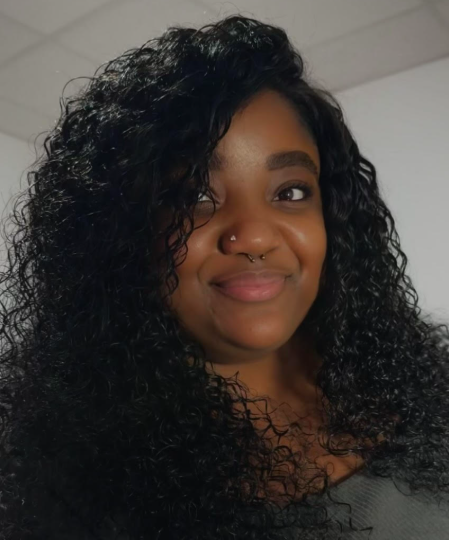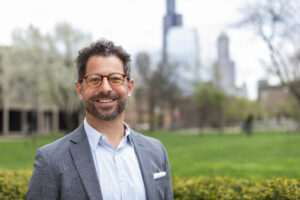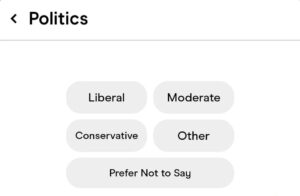Mariah Nichelle’s journey from teaching to becoming a dean and now working at a mental healthcare center has been deeply intertwined with her personal mental health journey. Each career shift was a response to both her own struggles and her growing commitment to mental health advocacy.
“Thirty days before I had to report in person for my second year of teaching, my younger brother unexpectedly passed away,” said Nichelle.
That loss reshaped her understanding of mental health, a cause that became even more personal as high school students turned to her for guidance. While she was honored to be a trusted figure, supporting others while managing her own grief became overwhelming.
“I was honored to be known as the mental health teacher, but hearing students’ traumas triggered my own.”
Leaving the classroom was an act of self-preservation, she said. However, stepping into the role of a dean only worsened her struggles. After experiencing a medical emergency at work and receiving little support from administration, she knew it was time for another change.
Now, as an education and engagement specialist at NAMI Chicago, Nichelle feels she has found her place. Since 1979, NAMI Chicago has championed mental health by breaking down barriers to care and supporting individuals, families, and professionals across the community. Committed to inclusive, community-based healing, we work every day to ensure everyone has access to the support they need to live well and recover fully.
“I still teach, but now I focus on what matters most to me — mental health,” she said.
Her impact on students didn’t end when she left the classroom. Former student Melanie Luna recalled how Nichelle emphasized self-care and mental well-being in a way that stuck with her.
“Ms. Nichelle wasn’t only a teacher but a mentor,” Luna said. “She was wise, and she truly cared for her students. She would always tell us, ‘It’s okay not to be okay,’ and she reminded us that we shouldn’t overwork ourselves — that we can be somebody apart from what the education system sees us as.”
Nichelle shares her experiences publicly, including on her podcast, Learning Through My Life. One of the most personal topics she has discussed is the loss of her younger brother, whom she called “Munchkin.”
“Even four years later, it feels unreal. I needed an outlet to cope,” she said.
Her personal experiences with grief and trauma have shaped her approach to mental health advocacy. She focuses on youth, believing they are the future.
“I did this big event called NAMI-Palooza, and I worked with people who weren’t from an education space or youth-focused background — and it showed,” she said. “A lot of my work is student-centered.”
Currently pursuing a master’s degree in trauma-informed leadership, Nichelle said she isn’t doing it for herself.
“I’m doing this with my brother in mind, with my best friend who passed away, with my former students in mind,” she said.
She recalled a moment when a student made her realize she needed to change paths.
“She told me, ‘Miss, you’re not the same teacher you were at the beginning of the school year,’” Nichelle said. “That was the day I knew I had to make a change.”
Another former student, Viridiana Romero, remembered how Nichelle provided a safe and understanding space when she was struggling.
“One day, she saw me come back from my counselor’s office, looking sad with my face red,” Romero said. “She pulled me aside and asked if I was OK. I told her my counselor and parents had agreed to find me anger management places, and they wanted to transfer me to another school. I didn’t want that, so I was crying about it.”
Romero said Nichelle reassured her in a way no one else had.
“She said, ‘They want to send you to anger management for being a teenager?’ She hugged me for a minute, and I really needed a hug from someone I trusted,” Romero said. “She was the only teacher I can think of who made students feel included and safe.”
Nichelle said one of the biggest challenges in mental health awareness — especially in education — is visibility.
“Even though NAMI is a national nonprofit, we still struggle with brand recognition and funding,” she said.
Another issue, she said, is stigma. “Some people don’t want to talk about mental health because of fear, embarrassment, or cultural differences,” she said. “But if we aren’t even inching forward to address mental health — which affects everyone — what are we doing?”
Through her work, podcast and advocacy, Nichelle hopes to leave people with one key message: “You matter,” she said. “No matter what anyone tells you, no matter what you may believe about yourself, never forget that you matter. Your life matters. Your dreams matter. Your future matters. The world literally would not be the same without you in it.”












Be First to Comment